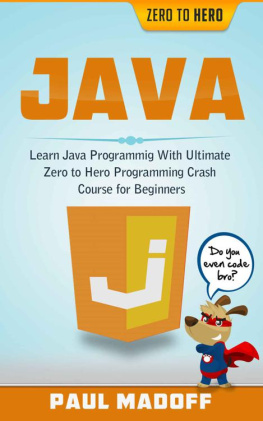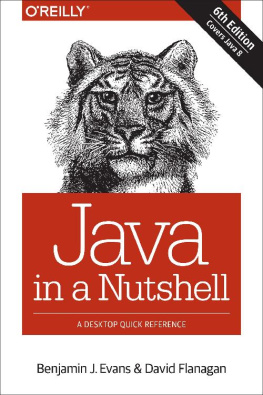Barajima Books 2020, all rights reserved. No part of this publication may be reproduced, stored in a retrieval system or transmitted by any means, electrical, mechanical or otherwise without the written permission of the copyright holder.
Publishers Note
Although in most cases we have retained the Authors original spelling and grammar to authentically reproduce the work of the Author and the original intent of such material, some additional notes and clarifications have been added for the modern readers benefit.
We have also made every effort to include all maps and illustrations of the original edition the limitations of formatting do not allow of including larger maps, we will upload as many of these maps as possible.
ESCAPE FROM JAVA
Three Men Take to the Sea to Flee the Japanese
Cornelis van der Grift and E. H. Lansing
Escape from Java was originally published in 1943 by Thomas Y. Crowell Company, New York.
CHAPTER ONE
De Japanners zullen Java nooit krijgen.
Thats what they said in Batavia. The Japs will never get Java. It wasnt only the Batavians who felt this way. People all over the island believed it. I suppose it was natural. No one thinks it can happen to him.
You cant blame them for believing as they did. When you have lived in a place for hundreds of years and built it into one of the wealthiest and best-governed islands in the world, its difficult to imagine that anyone can take it away from you. Java is a beautiful spot, lying, as someone has said, like a belt of emeralds around the equator. Its abundant foliage seems to burst from the ground; flowers, trees, and shrubs are everywhere. Most of the white population lived on the plantations in the interior or in the large cities. Batavia, with its attractive streets, large squares, the clubs, the great hotels like the Hotel des Indes, said to be the best hotel in the Far East, was a city of extraordinary charm.
Java was my home for twenty-two years. I came to the island from Holland when I was a child of six. Except for two years at a university at home and occasional short visits to other countries, I was in Java continuously. But living on an island did not give me an insular point of view. I have always been interested in outside events, have tried to interpret them and their effect on the world as a whole.
It should be understood that it was the white population, together with the large group of Indonesian intellectuals, who had the greatest interest in world affairs. The Indonesian peasant lives more isolated from the rest of mankind. These Javanese farmers are gentle people. They live a peaceful life in their inland villages, high on the slopes of the great volcanic mountains or in the valleys between. The cultivation of their rice crops, the communal village life, their families and their simple amusements occupy their attention primarily. Even those who live in cities like Batavia or Surabaya have not become sophisticated in any sense of the word.
There are forty-seven million Indonesians like this on the island of Java as compared to two hundred thousand Europeans, chiefly Dutch; six hundred thousand Chinese and an insignificant sprinkling of four or five thousand Japanese.
I have no intention of trying to make this book a comprehensive history of Java, its people, their customs, habits, and general way of life. Anyone can find these facts in countless books, all of which are far more detailed and learned than anything I care to attempt. This is the story of what I personally know about Java, how the threat of Japanese conquest affected me, how I lived under the so-called Jap co-prosperity rule and finally how I escaped from it. But in order to give some idea of Java, the governmental center of the East Indies, a brief sketch of its history and its people may not be out of place.
Except for a brief period in the early nineteenth century, Holland has controlled the East Indies since the beginning of the seventeenth century. It is no use pretending that the Dutch overlordship has always been a model of orderliness and benevolence. In the early years some of the Dutch governors, like the administrators of other European-ruled colonies, were harsh and overbearing to an extreme. But for the last hundred years, the Dutch administration has been a just and understanding rule that has made the Netherlands East Indies one of the happiest and most prosperous areas in the world.
One of the principles of the Dutch government has been to respect Indonesian culture and to develop it along their own lines. The Javanese culture is an ancient one and any attempt to force the Indonesians into the ways of so-called civilization would be not only difficult but criminally stupid. The Dutch have always been careful to preserve adat, or the native law, and the Indonesians appreciate this respect for their age-old manners and customs.
As an instance it can be mentioned that the government built modern irrigation systems for the native sawahs, or rice fields, a vast improvement over the crude mud walls and dams of former times, which crumbled away during each rainy season. The peasants liked the new system, but no amount of persuasion could make them use a sickle instead of a hand knife to gather the crop. The grain would be offended if we used such rude methods, was their explanation. And so the rice is gently cut a few stalks at a time on the theory that it will be better pleased by such thoughtful treatment.
Each villageand there are many of them on the thickly populated island of Java, where 821 people live crowded within each of its fifty-one thousand square mileshas its own administration. The village chief is the man to whom the Javanese look for a solution to all their problems and disputes. Though the government is naturally a court of last appeal in case of necessity, it in reality interferes as little as possible in local matters. A European is not allowed to buy land from the natives, for the rice fields are handed down from father to son among the natives and the Dutch have no desire to upset this natural order of succession.
Of course, there is a large group of intellectual Javanese and these people take great interest in administrative and cultural affairs. The Peoples Council in Java is composed of sixty men; thirty of them Javanese, five Orientals, and twenty-five Dutch. This Council, with its predominating native influence, is the real law-making body in Java.
From my own intimate knowledge of the Javanese I can state as a fact that the natives are not in any sense oppressed by the Dutch living on their island. Among the intellectuals there is a group that works toward self-government for Java, but the Dutch do not suppress it; in fact, they are encouraging an educational program that will allow the Javanese a larger share in the administration. The Indonesians as a whole appreciate the advantages that the white people have given them; the tremendous improvements in sanitation, the modern schools which anyone is free to attend, and, above all, the wisdom the Dutch have shown in allowing them to lead their own lives and pursue their own interests.
The Chinese in Java have fitted themselves into the island life so well that they are a welcome and necessary part of it. Generally speaking, the Chinese are the shopkeepers. They operate good stores and give liberal credit to the natives; something which is highly appreciated, though it sometimes leads to usury. The fact that the Chinese show a profit under this system at the end of a business year is a major miracle. But they flourish under it and many of them are third and fourth generation Chinese. In every sense of the word they are loyal and essential citizens of the country.










![Nzenwa I. U - Java Basics: An intro to Java and the Java developement [development] environment](/uploads/posts/book/109245/thumbs/nzenwa-i-u-java-basics-an-intro-to-java-and-the.jpg)